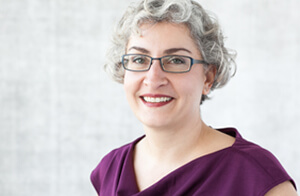How Well is Research Truly Informing the Sector?
In the last week, the Center for Effective Philanthropy’s Phil Buchanan penned an Op Ed for the Chronicle of Philanthropy challenging the sector to consider the degree to which we’re all culpable for promoting and consuming the equivalent of research “fast food.” Suggesting that much of what is circulated as nonprofit research really isn’t research at all, Buchanan exposes the temptation to which many of us are susceptible: presenting (or accepting) an insight or observation supported by thin evidence as though it were knowledge.
My colleagues and I at La Piana Consulting circulated this article with great interest in the criticisms and cautions it offered. As a consulting firm that has always sought to prioritize research and publishing (despite our small size relative to competitors), we take these issues very much to heart. In our own work, we often grapple with what we mean by “research” and how we communicate what we do.
In part, we play the role of information gatherers for our clients, using methods such as literature and document review, stakeholder interviews, financial analysis, and competitor/collaborator profiles to inform individual organizations’ strategic discussions and decision making. This is part of our charge as consultants. However, we also undertake the kind of research Buchanan is talking about, the “thought leadership” articles and tools intended to inform not only our clients but a broader audience, possibly even the sector at large.
One reader comment on the Chronicle article notes that resource limitations can restrict the ability of small research teams and organizations to provide the rigor and depth that research topics facing the sector truly deserve. We agree that the practical question of how to finance research of a statistically-significant scope and scale is a challenge. At the same time, we acknowledge Buchanan’s admonitions that in the rush to stay ahead of the curve, consultants and research firms too often neglect to build on one another’s work to create deeper understanding of the issues we all care about.
This article reminds us that at the very least, we must be honest with ourselves and our audiences about the limitations of our research and the conclusions it promotes. Often, our aim is not to define the state of the sector, but to advance a conversation. We can do more to help readers understand the difference and to be smart information consumers in this age of data overload and the lure of new “discoveries.”
The takeaway: let’s all do better.


Comment section